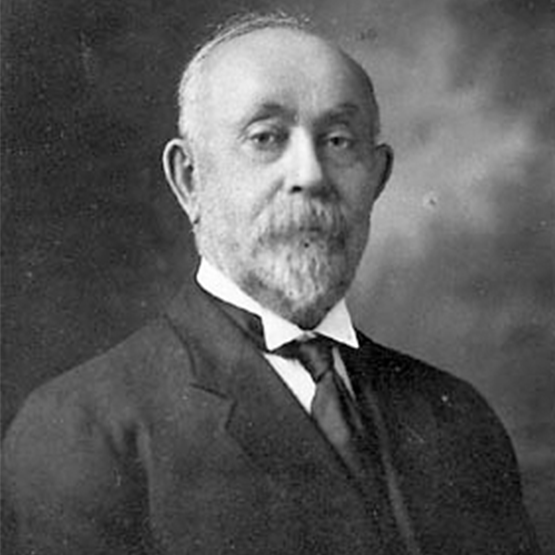
Jacob Diamond, first Jewish settler in Calgary, Alberta. 1920, (CU187655) by Unknown. Courtesy of Glenbow Library and Archives Collection, Libraries and Cultural Resources Digital Collections, University of Calgary.
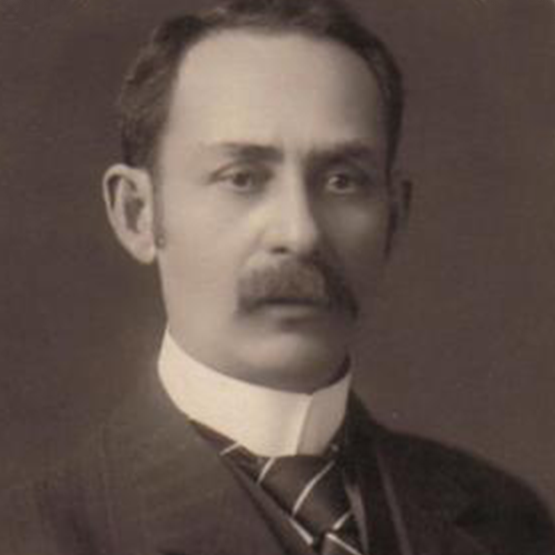
William Diamond, [ca. 1900] by Unknown. Courtesy of Jewish Archives and Historical Society of Edmonton and Northern Alberta, Archives Canada.
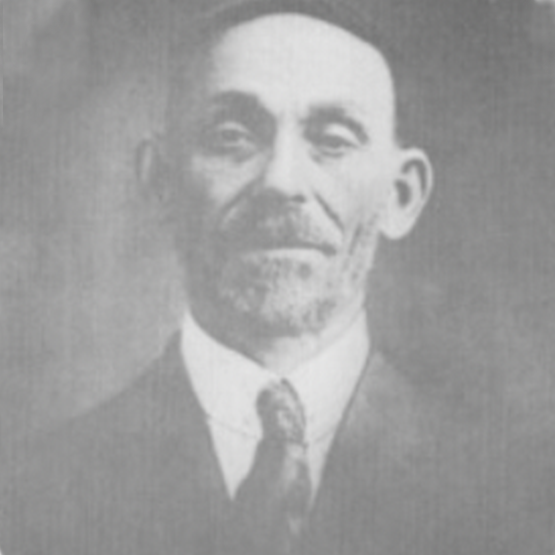
Phillip Diamond [ca. 1900], by Unknown. Courtesy of Jeff Cohen.
Jacob Lyon Diamond (Tabarisky)
Jacob Lyon Tabarisky (1859-1929) and his brothers, William (1863-1945) and Phillip Shraga Feivel Diamond (1867-1943), were born in the town of Oshmana, Belarus. They adopted the surname Diamond after immigrating to Canada. The Diamond brothers were Jewish pioneers in Alberta, with Jacob in Calgary, William in Edmonton, and Phillip in Canmore. With the promise of land, other families followed and settled in Medicine Hat and Lethbridge. After the birth of the province of Alberta in 1905 and the arrival of the Canadian Northern Railway in 1910, many Jewish newcomers became homesteaders in areas such as Trochu, Rumsey and Sibbald. They were active in community building, farming, and serving as school trustees and justices of the peace. As the urban centres developed with amenities and institutions, many Jews migrated from rural to urban centres.
Jacob Lyon Diamond was born in Oshmana in 1859, immigrated to England to avoid conscription into the Tsar’s army around 1880, and subsequently migrated to Upper Canada in 1884. He met his wife-to-be, Maria Stoodley when she served as a domestic for a Jewish family in Upper Canada. Maria Stoodley was born in Pembroke, Ontario, and became Rachel Diamond after she converted to Judaism and married Jacob Diamond in 1886.
When the couple migrated to westward in 1888, they became the first permanent Jewish settlers to Calgary, which at the time was part of the Northwest Territories. The couple had five children – Joe, Myers, Rose, Hattie, and Dorothy. In Calgary, Jacob Diamond worked as a pawnbroker and liquor merchant and traded in fur and hides with the Indigenous peoples of the territories. He also owned a garment store.
Jacob Diamond and his brothers were pivotal in establishing and supporting Calgary’s newcomer Jewish community members who migrated from Russia, Eastern Europe, and the Baltic states – Belarus, Lithuania, Romania, and Poland – and building enduring community institutions. In 1890, two years after moving to Edmonton, William Diamond founded the first synagogue in that city. In 1894, the Diamond brothers rented Calgary’s Masonic Hall to initiate the first formal Jewish High Holidays services for Rosh Hashanah and Yom Kippur.
After the death of his friend Nathan Bell’s baby girl in 1904, Jacob Diamond was the community lead for locating land for the first Jewish cemetery, the “Hebrew Burying Ground,” the precursor to the Chevra Kadisha. A year later, in 1905, the Jewish community received its first Sefer Torah – a gift of a Montreal garment maker facilitated by William Diamond. Jacob Diamond was also actively working on a trio of initiatives – a rabbi, a synagogue, and a kosher butcher. In 1906, William Diamond helped establish Alberta’s first Jewish religious council. That year, Hyman Goldstick moved from Toronto to Edmonton to become Alberta’s first full-time Jewish religious leader of Beth Israel in Edmonton and Jewish communities in Calgary and surrounding rural areas.
The Congregation House of Jacob was incorporated in 1909 with classroom space for Hebrew lessons, and Calgary’s first synagogue, Beth Jacob, was completed in 1911. The officiating ceremony in September 1911 was led by Jacob Diamond and then Calgary MLA Richard B. Bennett, who became Canada’s Depression prime minister. (It is notable that during the Depression and unemployment, newcomers faced racism, antisemitism, and xenophobia. Bennet restricted immigration to those who were wealthy and had British and American roots.). In 1917, Rabbi Smolensky assumed leadership of rabbinical services. In 1920, the Hebrew School was developed. Today, Beth Jacob is now the Congregation House of Jacob-Mikveh Israel.
Throughout the next two decades, Jacob Diamond, semi-retired, continued to play a community leadership role, including as House of Jacob's president. He also served as an English and Yiddish court translator for Yiddish-speaking Jewish immigrants who faced antisemitism and xenophobia from judges who stereotyped them as untrustworthy and perjurers (e.g. Calgary magistrate Gilbert Saunders). He was a major donor and sponsor of community institutions and scholarships. When Jacob Diamond died in 1929, his service was conducted in his home by Rabbi Smolensky, and he was buried at the cemetery he founded.
Harry Cohen
Harry Cohen (1912 - 1990) was an entrepreneur, community builder, and philanthropist. He was among Calgary’s most generous citizens.
The son of Alexander and Rose Cohen (nee Diamond), Harry Cohen was born and raised in Winnipeg to a poor, immigrant Jewish family. He was the second eldest of six brothers (Albert, Harry, John, Joseph (Chauncey), Morley, and Samuel). At age 15, Cohen quit school and took up various jobs to support his family, including as a doorman at a theatre in Winnipeg. Later, he secured a job as a film inspector with Warner Brothers, transferring him to Calgary in 1932.
Cohen fell in love with Calgary and, two years later, persuaded his entire family to join him in the city. Working together, the brothers embraced the city's entrepreneurial spirit and pursued various highly successful economic enterprises. He met his wife, Martha Block when she worked as a secretary at Warner Brothers. They married at the Pallister Hotel on December 20, 1945. Martha Block Cohen’s family were also immigrants with stories. She was the daughter of Rebecca Diamond Block and Peter Block and the granddaughter of Canmore’s first Jewish settler, Philip Diamond.
Harry Cohen was an entrepreneur. His love of motion pictures led him to purchase the Crescent and Plaza Theatres, which he eventually sold to Sam Slutker. With Ted Ribeck, he developed commercial properties. After the war, Harry Cohen and business associate Ralph Kalef opened the first war surplus stores in Calgary.
In the postwar period, the Cohen brothers expanded and diversified their businesses. They established a small retail store and, in 1939, established the successful import firm General Distributors, Ltd., and secured the distribution rights for the popular Paper Mate pens, as well as toys and other goods and services.
The firm grew in the 1940s and 1950s. Led by Samuel Cohen, they launched the SAAN (1947-2008) discount department chain in all provinces. Led by Morley Cohen, they expanded Metropolitan junior department stores. Each of the brothers relocated to a major city across Canada to manage the firm's growth. While Harry Cohen stayed in Calgary, brothers Morley moved to Montreal, John to Toronto, Joe to Vancouver, and Albert and Sam set up the headquarters in Winnipeg. They also expanded into oil and gas exploration, real estate, and retailing. In 1955, his brother, Albert, negotiated and acquired the sole distribution rights for Sony products in Canada. In 1983, they renamed the conglomerate Gendis, Inc., which is listed on the Toronto Stock Exchange as an investment and real estate company with a stake in Sony of Canada and the SAAN chain.
Harry Cohen and his wife Martha were community builders and philanthropists, and the two were generous in charities and the performing arts. It was important for him to give back to the community and the city where he lived, worked, and built his economic success. He once said, “We feel that Calgary is a great city and you’ve got to do more than just pass through. You’ve got to become part of the community.” He was involved with many community organizations, including the Boy Scouts of Canada, Calgary Stampeder Football Club, Camp B’nai B’rith, and the Canadian Council of Christians and Jews. He played a leadership role with many nonprofits, including as a director of the Stampeder Football Club, the Calgary Chamber of Commerce, and the Calgary Philharmonic Orchestra. He also served as president of the Calgary B’nai Brith Lodge No. 816.
Cohen received numerous awards and honours for his community service. He was the City of Calgary’s Citizen of the Year in 1960, the State of Israel Medal from Golda Meir in 1970, and a University of Calgary Honorary Doctoral Degree in 1973. Harry and his wife Martha became the first couple to each receive the Order of Canada in 1974.
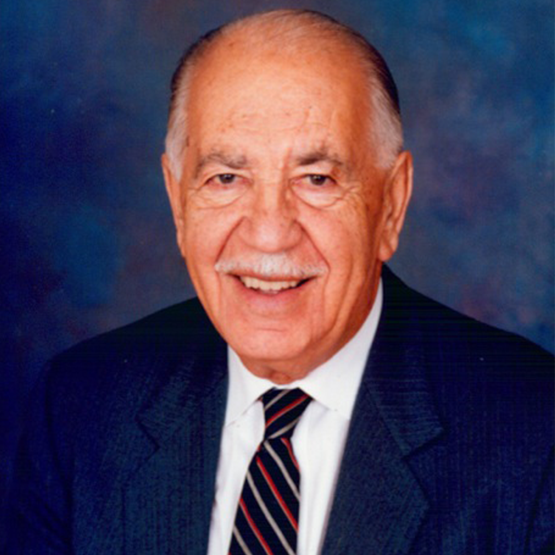
The Harry & Martha Cohen Foundation
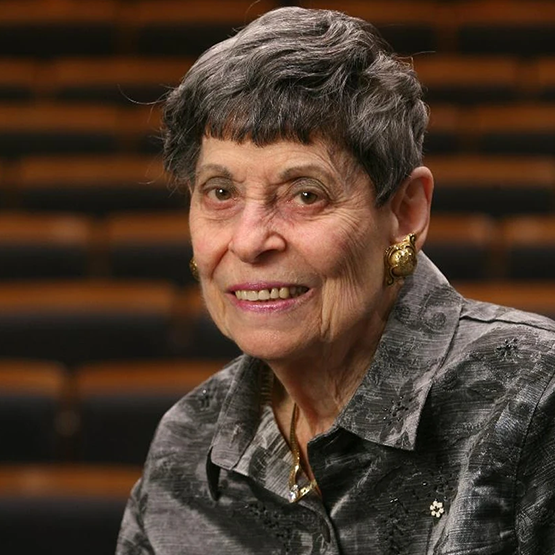
The Harry & Martha Cohen Foundation
Martha Cohen
Martha Ruth Cohen (née Block) (1920 - 2015) was a respected Calgary trailblazer, philanthropist, and community leader. Throughout her life and career, Cohen made impactful contributions to Calgary and the province of Alberta, including to the postsecondary education sector, social institutions, and the performing arts, leaving an enduring legacy. She married Harry Cohen, and individually and together, they ranked among Calgary’s most impactful community builders.
As the great-grandniece of Calgary’s first permanent Jewish family (the Diamond brothers), Cohen was born in Calgary in 1920 and was the only child of Rebecca and Peter Block. She studied at McDougall School and Central Collegiate. Cohen obtained a BA. from the University of Alberta in 1940 and a Diploma in Social Work from the University of Toronto in 1945. She received an Honorary Doctorate from the University of Calgary in 1982 and an Honorary Bachelor of Applied Communications from Mount Royal University in 1995.
Cohen’s love of the arts led her and two other women, Sandra LeBlanc and Vera Swanson, to tirelessly fundraise millions of dollars to help build the Calgary Centre for the Performing Arts, now known as the Arts Commons. Her background in social work and her commitment to her faith and social well-being led her to create and support many social and cultural institutions, including establishing Calgary’s Jewish Family Services, where she served as an executive director for many years. She also served as president of the National Council of Jewish Women of Canada.
A commitment to the public good shaped Cohen’s service on the boards of numerous public and non-profit institutions. She was the first woman to serve as Board Chair of Mount Royal College (now Mount Royal University), where she helped to secure the location and funding of a new campus. Her support of Indigenous education also underwrote her 12 years of service on the Siksika Nation-led Old Sun Community College board. She also served on the board of the Calgary Centre for the Performing Arts and acted as Chairwoman of the William Roper Hull Home for Boys and Girls, which provided mental health and behavioural support for children and their families.
Cohen’s varied contributions to the community led to numerous awards and honours. Along with her husband, Harry Cohen, the couple received an Order of Canada in 1975. Cohen also received the Queen Elizabeth II Silver Medal in 1977, the Calgary Citizen of the Year Award in 1979, the Boys Scout Medal of Canada in 1984, the City of Calgary Centennial Award of Merit in 1985, the Scopus Award, Canadian Friends of the Hebrew University of Jerusalem in 1994, the Alberta Centennial Medal in 2005, and the Best of Alberta Award in 2008. Cohen was also a recipient of the Alberta Order of Excellence for “making a difference by serving Alberta with excellence and distinction.” In April 2017, a middle school in New Brighton, the Dr. Martha Cohen School, was named in her honour.
Sheldon Chumir
Sheldon Mervin Chumir (1940 - 1992) was a renowned Calgarian, Rhodes Scholar, lawyer, entrepreneur, businessman, elected politician, lecturer, civil libertarian, and advocate for human rights and individual freedoms. Chumir was born in Calgary on December 3, 1940, and died on January 26, 1992, of lymphoma cancer. His obituary described him as a “soft-spoken man with a quirky sense of humour [who] was a determined champion of public education and individual freedom.”
Chumir was the only child of Jewish immigrant parents, Harry and Clara Chumir. They were owners and operators of a small grocery store in Calgary. He was educated at the I. L. Peretz School and Central Memorial High School in Calgary. He attended the University of Alberta Law School, where he attained an LLB in 1963 and graduated with a gold medal. In 1963, he was selected as a Rhodes Scholar and studied at Oxford University, where he earned a Bachelor of Letters in 1965.
After returning to Calgary from his studies at Oxford, Chumir practiced as a tax lawyer at the law firm later known as Bennett Jones from 1965 to 1976. He established a sole legal practice in 1976. The Sheldon M. Chumir Professional Corporation specialized in civil liberties cases, through which he often undertook pro bono services. A tireless advocate for human rights and civil liberties, Chumir was a founder of the Calgary Civil Liberties Association and an active member of the Alberta and Canadian civil liberties associations. He served as Chair of the Civil Liberties Section of the Canadian Bar Association from 1981-1982 and served on committees concerned with police practices, race relations, human rights, police practices, legislative review, and freedom of information.
Chumir was a successful entrepreneur with investments in concert promotion, oil and gas exploration, and real estate. He was also a tireless advocate of community well-being and public education. Chumir served on the United Way of Calgary board from 1984 to 1986 and was a founder of Save Public Education, a non-profit organization opposed to public funding of religious schools. Chumir also lectured on civil liberties and human rights at the University of Calgary’s Faculty of Law.
In the mid-1980s, Chumir entered provincial politics and ran in the 1986 provincial elections for the Calgary-Buffalo riding. In winning the elections, Chumir was among the first Liberals elected to the Legislative Assembly of Alberta. He was re-elected in 1989. In this role, he advocated for ethical leadership, the advancement of democratic legislation, and social reform.
The Calgary Stampede Foundation posthumously honoured Chumir with the centennial edition of the Western Legacy Award in 2012. Chumir had no close relatives at the time of his death, and he left the majority of his estate to establish the Sheldon M. Chumir Foundation for Ethics in Leadership, which provides scholarships for students studying leadership and law. In April 2008, the Government of Alberta posthumously named the Sheldon M. Chumir Health Centre in Calgary in his memory.
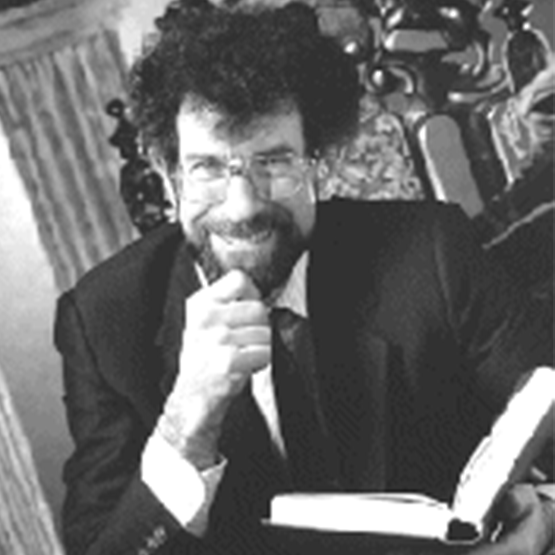
Chumir Foundation for Ethics in Leadership
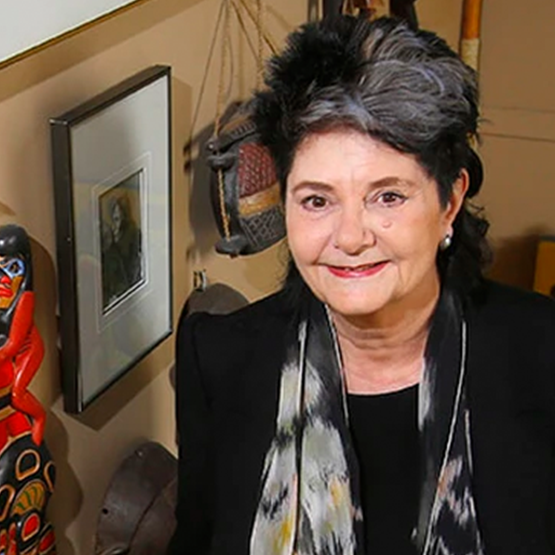
Darren Makowichuk, PostMedia
Christine Silverberg
Christine E. Silverberg (b1949) is an accomplished Canadian lawyer. Throughout her career, Silverberg built a distinguished career in law and public safety in Ontario and Alberta, beginning in Corrections and later in Policing. This included working as an undercover police officer and in the Ontario Solicitor-General's Office. Silverberg moved to Alberta in 1995 to become the Chief of the Calgary Police Services, the first woman to hold the role, which she held until 2000.
Born in Brampton, Ontario, Silverberg was educated at York University, where she earned a B.A. in political science, and the University of Toronto, where she earned an M.A. in criminology. After retiring as Chief of the Calgary Police Service, Silverberg was admitted to the Faculty of Law at the University of Calgary and graduated with a J.D. degree in 2003. Silverberg also completed Queen's University School of Business Executive Program. She is also certified with the United States F.B.I. National Executive Institute.
Silverberg worked in the law firm Gowlings, where she was named Partner in 2008. In 2015, Silverberg launched SilverbergLegal, an independent law firm.
An award-winning lawyer, Silverberg was awarded an Honorary Doctor of Laws from Mount Royal University in 2021, named among Canada's 100 Most Powerful Women in 2004, and was a recipient of the YWCA’s Woman of Distinction and the B'nai B'rith Woman of Valour Award, the Nigerian Canadian Association’s Distinguished Service Award, and the Premier’s Award of Distinction for Learning in the Workplace. The Lieutenant Governor appointed 2010 Silverberg in the Council of Alberta to hear tribunals established under the Health Professions Act of Alberta.


